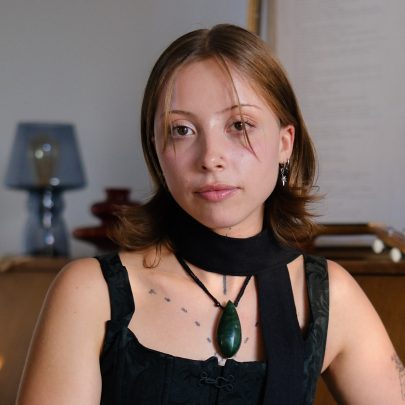May 17, 2014 Books
My own mother gave me Patricia Grace’s first novel, Mutuwhenua, to read when I was 13 years old. On putting down that book, I mourned its loss for five minutes before picking it back up, turning to page one and starting again. It was the first time I had read a book that described a world I knew, with a character who, like me, was questioning her identity.
I thought then that I might have a story to tell too.
Years later, when I was the mother of three young children, Patricia asked me about the play I was writing.
‘‘I’m too busy with kids to write,” I sighed. “No time.”
“You might just have to make the time,” was the response.
Those words struck me and I thought of how it would’ve been for her back in the day, writing novels with no fewer than seven children to wrangle as well as a fulltime teaching job. I stopped feeling sorry for myself and began to fill blank pages with words. I wrote while my kids played at the park. I wrote while my family and my dog slept. I wrote at the kitchen table while the kids ate breakfast. I showed up at Taki Rua theatre wielding scripts dappled with tiny Marmite fingerprints.
Patricia’s stories carry with them a great sense of community, with characters and their actions — both past and present — inextricably connected to the wellbeing of the people and to that of the generations yet to come.
The novel Potiki tells the story of a community fighting to hold onto their tribal land which is under the threat of development. Although Potiki was written in 1986, the story’s premise and its outcome echo a battle that was very recently fought in the courts by Patricia and her family.
The background to the case goes something like this — Patricia’s great-great-grandfather and noted leader, Wi Parata, donated large sections of his land to the community of Waikanae, north of Wellington. The last parcel of land was left in Patricia’s hands. When the New Zealand Transport Authority attempted to forcibly acquire the land to build the Kapiti Expressway, Patricia stood her ground, saying, “Enough is enough”.
The groundswell of support from both Maori and Pakeha — many of them writers — was phenomenal. The case to retain the land as a reserve has now been won in both the Maori Land Court and the Environmental Court. We hope the land will be left as is, for generations of Wi Parata’s descendants to enjoy.
Hongoeka, Patricia’s home, is a gentle curve of a bay, with vast views across the sea to Mana Island and to the Kaikoura Ranges in the South Island. There, she isn’t known so much for being a multi-award-winning writer, a Distinguished Companion of the New Zealand Order of Merit, or the winner of ground-breaking court cases. At Hongoeka Bay, Patricia can often be found at the kitchen table helping a grandchild with homework or helping out at the marae with the various hui that are held there.
There, she is known as Nanna, Mum or Aunty Pat, and I can still hear her late husband, Kerehi Grace, gently calling her “dear”.
In fact, not long ago, after reading one of Patricia’s stories, my little girl said, “Nanna is actually quite a good writer. I hope that someone tells her that.”
Patricia Grace and Briar Grace-Smith photographed at Patricia’s home on the Kapiti Coast by Grant Maiden.
Patricia Grace appears at the Auckland Writers Festival as the “Honoured New Zealand Writer”” May 14 – 18, 2014. writersfestival.co.nz





